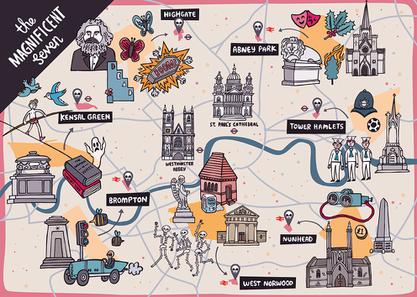CWDC online 16 August 2020

Meeting the fear of death with spiritual practices
The value and comfort offered by Buddhist philosophy
Psychedelic experiences and insights
Fear of death and of the loss of identity
The heartache caused by distance from relatives or lack of (contact with) an extended family
Who will mourn us? Who will attend any funeral or ritual at our death?
The current restrictions with minimal numbers being able to attend a cremation or funeral
How Covid-19 has raised our awareness as to the proximity of death
Zoom creating opportunities to connect with fellow human beings across the globe and spaces in which to explore being more outgoing
Missing physical contact and the connection that brings
The desire to be present in death
Discussing medically assisted dying with one's physician (US reference)
Making choices - designing our death for it to reflect our individual personality and choices, 'dying as me' - retaining identity up to, and beyond our deaths
The role of Advance Statements and the appointment of advocates - expressing our wishes when we lack the ability to speak ourselves
Contemplating our own attitudes and approaches to death. What is it that I am passing on? What message am I conveying? What am I modelling?
The fear of being in pain, and the fear of being frightened in the face of death
'This is it' moments where we touch in with our own mortality and the inevitability of death
The Victorians' relationship with death and the pomp and circumstance of their traditions and rituals
Having somewhere to go and visit our dead loved ones - locating someone in death
Visiting graveyards (rather than graves) - contemplating the histories depicted in the epitaphs, the comfort that may be found within these peaceful environments
Honouring and revering the lives of those who are commemorated
Revisiting past lives through hypnotherapy
The responsibility we each have, to consider our choices and make our wishes known
The often significant challenge involved in initiating and returning to these conversations with our children/families - the need for persistence and asserting ourselves, appealing to them - would you do me the service of listening to what it is that I would like to share with you?
The significance of a health event - bringing an Advance Directive 'to life' - shifting things out of the abstract, and into closer perspective - things becoming more real
Our next meeting:
Will take place on Sunday 13th September, at 18:00 BST (GMT +1).
This will use the same Zoom link:
https://us02web.zoom.us/j/89439385538
(Meeting ID: 894 3938 5538)
I have shared this on the deathcafe.com website, and Facebook page.
Please feel free to spread the word, and join our conversation!
To convert the time to your time zone: https://everytimezone.com/
Resources shared during our meeting:
Soylent Green - 1973 film by Edward G. Robinson
https://www.youtube.com/watch?v=N_jGOKYHxaQ
London's Magnificent Seven landscaped cemeteries
A ring of spectacular cemeteries, developed at the edges of London in the decade from 1832, have long been referred to as The Magnificent Seven. At the time, they set a new aesthetic for the burial of the dead, and remain rich in social history and beauty to this day. It was entrepreneurs, rather than the religious authorities, who responded to the squalor of the City's brimming churchyards by financing seemly, hygienic concepts of burial in the rural outskirts, now embraced by inner London. The Seven became showcases for neoclassical and neo-Gothic architecture, matched by splendid - sometimes eccentric - memorials recording Victorian society, and the sweep of London's history to the present day. From grand Kensal Green in the west to modest Tower Hamlets in the east; from heady Highgate to charming Norwood and Nunhead; and from the military influences of Brompton to the Non-conformist woodland of Abney Park - a host of characters and stories are visited in this distinctive coverage of the subject.
https://www.atlasobscura.com/categories/magnificent-seven-cemeteries
Stephen Jenkinson's Die Wise: A manifesto for sanity and soul (2015)
https://www.youtube.com/watch?v=8OSGVkpyRfw

